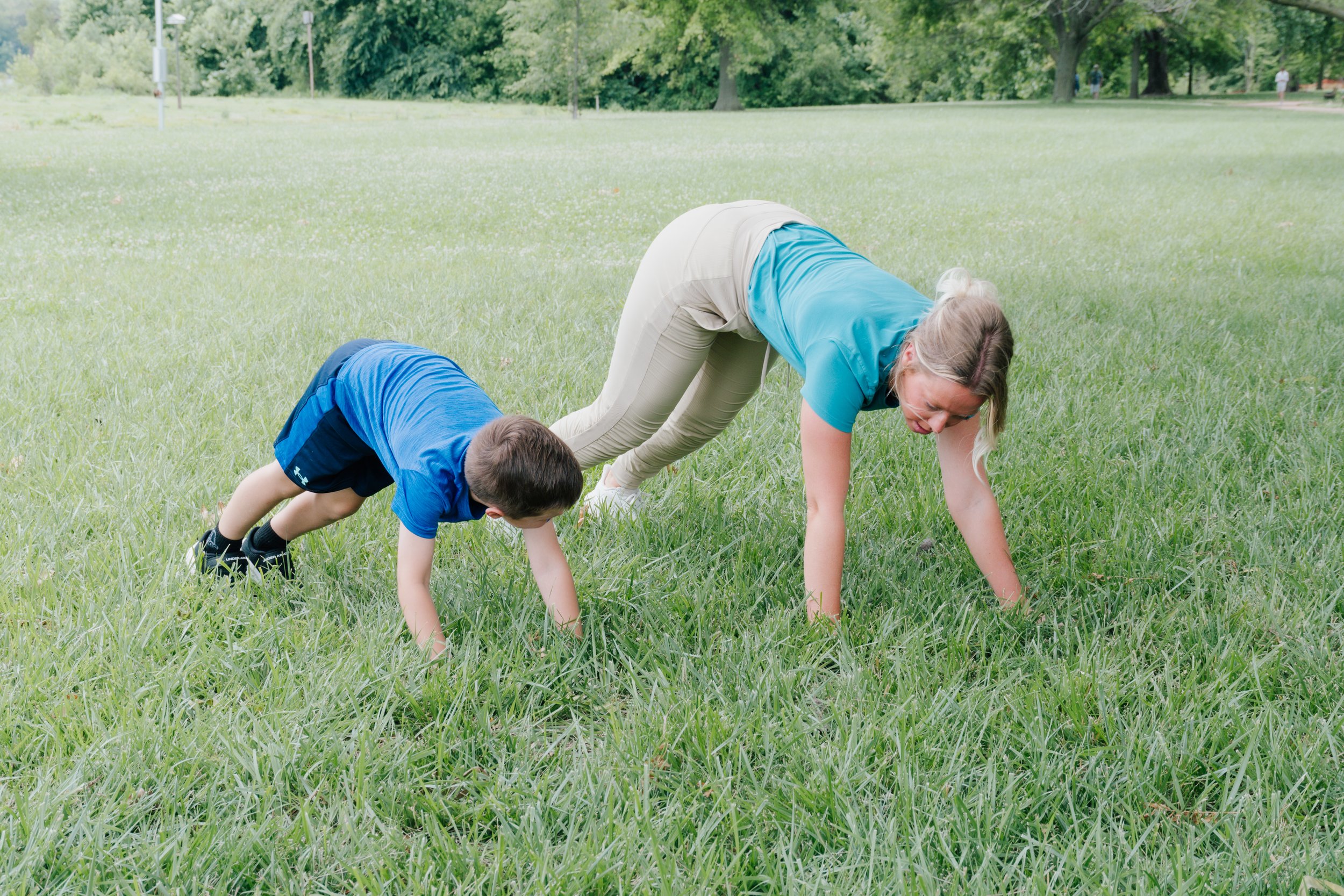
Frequently asked questions.
-
Pediatric occupational therapy addresses a wide range of skills and challenges that children may face. Here are some of the key areas occupational therapists work on:
Fine Motor Skills: Improving hand-eye coordination, dexterity, and control for activities like writing, drawing, and using utensils.
Gross Motor Skills: Enhancing balance, coordination, and strength for activities such as running, jumping, climbing, and playing sports.
Sensory Processing: Helping children process and respond to sensory information from their environment effectively, which can include sensitivities or seeking sensory input.
Self-Care Skills: Teaching tasks like dressing, grooming, feeding, and toileting to promote independence and daily living skills.
Social Skills: Supporting interactions with peers and adults, including skills like turn-taking, sharing, understanding social cues, and building friendships.
Executive Functioning: Strengthening skills related to planning, organization, time management, and problem-solving.
Visual Perception: Enhancing abilities related to visual processing, visual-motor integration, and spatial awareness.
Cognitive Skills: Improving attention, memory, sequencing, and other cognitive abilities necessary for learning and academic success.
Emotional Regulation: Teaching strategies to manage emotions, cope with stress, and regulate behavior in various situations.
Play Skills: Encouraging imaginative and cooperative play, which fosters creativity, social interaction, and problem-solving.
Through individualized assessments and therapy sessions, pediatric occupational therapists tailor interventions to meet each child's specific needs and goals. The ultimate aim is to promote independence, enhance overall development, and empower children to participate fully in daily activities and routines at home, school, and in the community.
-
We ask that children interested in groups are able to do the following:
Stay within 10 feet of the group (this means that your child does not elope.)
Is able to follow directions, either verbal or visual..you know, most of the time :D
Maintain behaviors that are safe and appropriate for peers (again, this is a goal for many of our PPT kids, but with groups, we prioritize the needs of the group over the needs of one, with safety at the forefront.)
Able to demonstrate basic safety awareness in the outdoors. Our setting is unpredictable, so we rely on our kids staying alert and attentive to a therapist who is more than an arms length away.
If you feel your child is not quite there yet with one of these, 1:1 might be the better option! We encourage kids to start here and work up towards a group if they aren’t ready yet, or if they learn best with continuous 1:1 direct attention from an adult.
Children might have a diagnosis of ADD/ADHD, Autism Level 1 or 2 (high functioning Autism, Aspergers), Sensory Processing Disorder, or have no diagnosis at all!
-
When it rains, we play! One of the best parts of the outdoor environment is that it can’t be controlled, just like the facets of everyday life! This is great practice for our kids, and also creates new opportunities for play. We play in the rain, hot, or cold, but will cancel for hurricanes.
-
Ready to join us?! YAY; we are so excited to meet you. Our individual therapy services start with an intake call; to schedule this, fill out our initial interest form and we will reach out to you within 48 hours to schedule a call. We do these Monday-Friday.
Our social groups are at capacity until April 1st, but we are actively building our next set of groups to start following CCSD spring break. Fill out our interest interest form and we will schedule a time to. talk more!
-
We don’t! At Playful Palms Therapy, we specialize in providing high-quality occupational therapy through a private practice model. By not accepting insurance, we prioritize:
1. Personalized Care: Tailoring therapy specifically to your child's needs without insurance restrictions.
2. Flexible Treatment Options: Offering diverse therapeutic approaches and scheduling flexibility.
3. Enhanced Client Experience: Streamlined administrative processes for more focused therapy sessions and stronger client relationships.
4. Long-Term Benefits: Empowering your child with skills that promote independence and confidence.
Insurance Reimbursement Information:
We understand that navigating insurance coverage for healthcare services can be important. Upon request, we are happy to offer superbills for the services provided. You can use these superbills to seek potential reimbursement from your insurance providers. Please consult with your insurance company to understand your coverage options for the services we offer.
-
Our primary “offices” are located within Mount Pleasant and James Island at a variety of local parks. If you are interested in an indoor approach, reach out to us! We are happy to accommodate with home visits.
-
Absolutely! While it’s unlikely you will see us with worksheets, our treatment format addresses the following skills that are essential for appropriate handwriting skills.
bilateral hand coordination
shoulder and postural stability
wrist stability and extension
finger isolation
thumb opposition
development of the palmar arches
visual perception skills
and MORE!
We address these through hands-on activities like crafts, projects, obstacle courses, recipes, and team-based games.
-
Improved attention and concentration: Nature offers a surplus of environmental stimuli that capture attention effortlessly. We call this soft facination, which allows your child to explore in their most naturally curious state to build their executive functioning skills.
Holistic approach to wellness: Studies show that sunshine and fresh air improves immunity, sleep quality, cognitive function, and emotional well-being, providing added benefits during our treatment sessions.
Current lack of access: Today’s education system and at-home hobbies are heavily weighted with screen time. Increasing time in the outdoors can decrease the negative effects of screentime by 20%.
Easy carryover: Clinic-based treatment sessions often utilize expensive and hard to access equipment. Our environment and therapy tools are easily found at parks, beaches, and your own backyard! This lets you easily practice the same activities we do with your children at home, allowing for progress to be made outside of weekly sessions.
Multi-sensory experiences: Outdoor sensory play helps to stimulate children’s senses. It helps children to develop their motor skills, language development, notice body position, and to use different strategies to solve problems.
